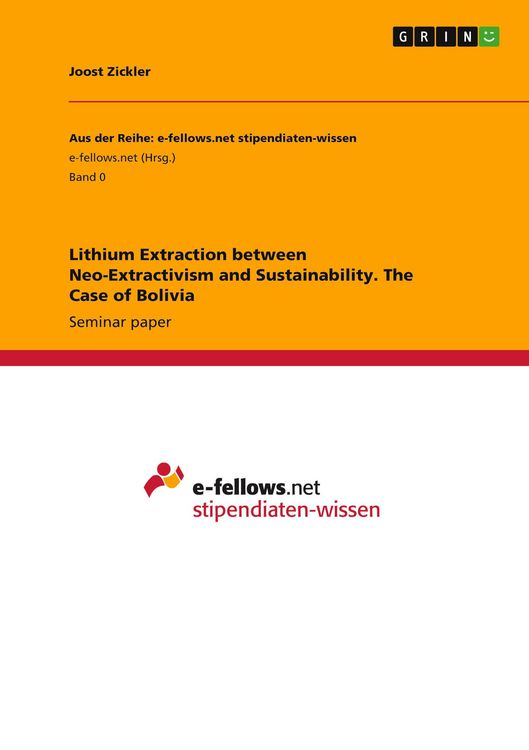
Lithium Extraction between Neo-Extractivism and Sustainability. The Case of Bolivia
-
- Taschenbuch ausgewählt
- eBook
-
Sprache:Englisch
16,95 €
inkl. MwSt,
Lieferung nach Hause
Details
Einband
Taschenbuch
Erscheinungsdatum
26.03.2024
Verlag
GRINSeitenzahl
20
Maße (L/B/H)
21/14,8/0,2 cm
Gewicht
45 g
Auflage
1. Auflage
Sprache
Englisch
ISBN
978-3-389-01113-3
Unsere Kundinnen und Kunden meinen
Verfassen Sie die erste Bewertung zu diesem Artikel
Helfen Sie anderen Kund*innen durch Ihre Meinung
Kurze Frage zu unserer Seite
Vielen Dank für dein Feedback
Wir nutzen dein Feedback, um unsere Produktseiten zu verbessern. Bitte habe Verständnis, dass wir dir keine Rückmeldung geben können. Falls du Kontakt mit uns aufnehmen möchtest, kannst du dich aber gerne an unseren Kund*innenservice wenden.
zum Kundenservice